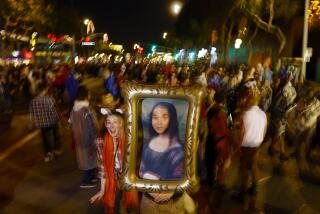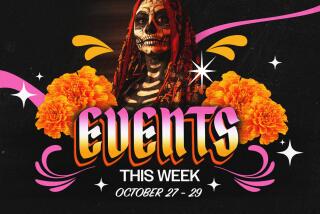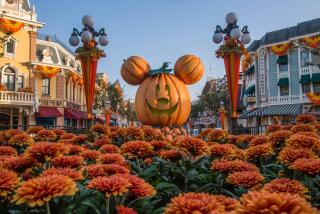Is Halloween canceled? Costumers, candy makers, theme parks face scary realities
With less than three months before the annual celebration of all things ghoulish and creepy, many Halloween festivities have either been canceled or will be dramatically altered out of fear of the nation’s biggest terror: COVID-19.
The likely results: A drop in orders for trick-or-treat candies and Halloween costumes and the loss of big crowds and hefty revenues at theme parks that host Halloween-themed events.
In short, another financial blow to an economy already weakened by the business closures and double-digit unemployment rates caused by the pandemic.
Halloween is “the holiday that comes second after Christmas as far as spending goes,” said Tom Arnold, a professor of finance at the Robins School of Business at the University of Richmond. “I don’t think it would be wrong to predict that spending gets cut in half, at a minimum.”
Halloween spending in the U.S. was estimated to top $8.8 billion last year, the third-highest amount in the 15-year history of the National Retail Federation’s annual survey. Americans were expected to spend $3.2 billion on costumes, $2.6 billion on candy, $2.7 billion on decorations and $390 million on greeting cards, according to the survey.
The biggest Southern California theme parks — Universal Studios Hollywood, the Disneyland resort in Anaheim and Knott’s Berry Farm in Buena Park — have been closed since mid-March and have already canceled their upcoming Halloween celebrations.
The Queen Mary, the ocean liner that has been converted into a floating hotel and tourist attraction in Long Beach, canceled its annual Dark Harbor Halloween event, which drew a record 140,000 visitors last year.
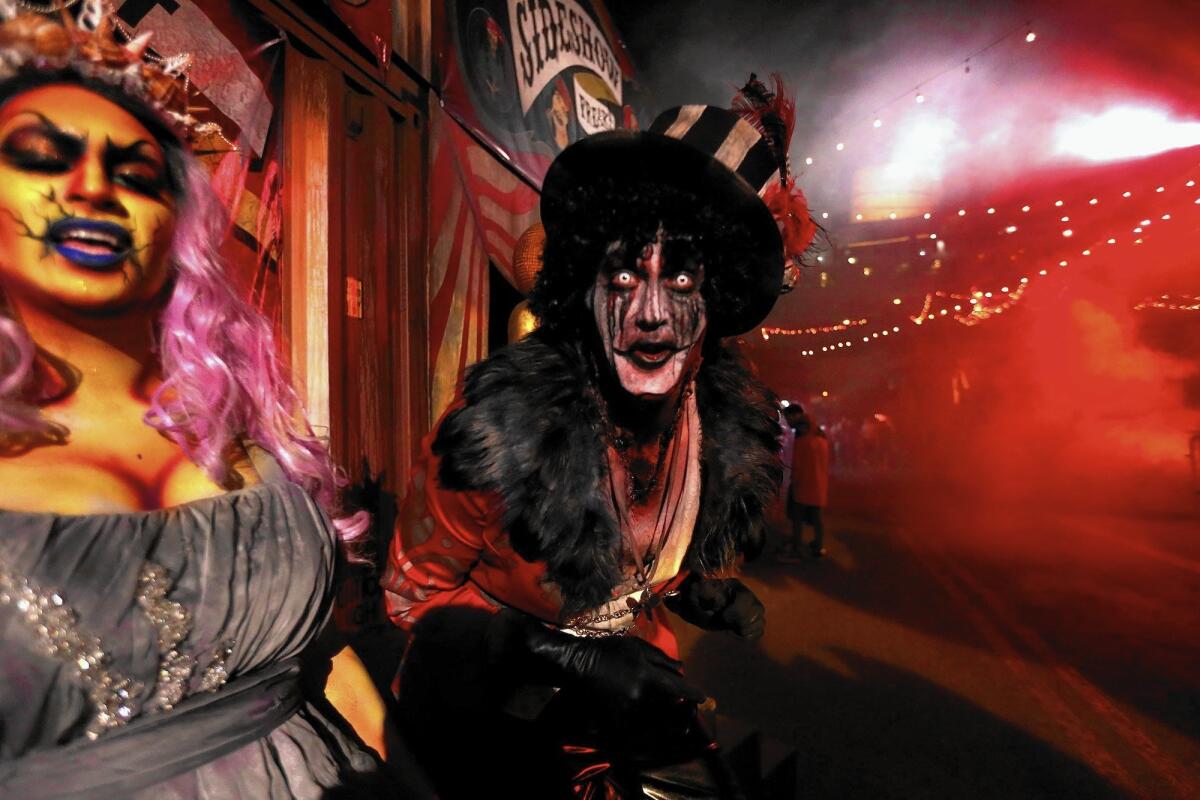
Six Flags Magic Mountain in Valencia has yet to announce this year’s Halloween plans.
In the past, Universal Studios Hollywood, Six Flags Magic Mountain, Knott’s Berry Farm and the Queen Mary have all drawn huge crowds to Halloween festivities that feature dark, cramped mazes where costumed actors jump out of the blackness to scream and breathe on frightened parkgoers — activities that today would violate social distancing guidelines mandated by health officials.
In announcing the cancellation of its annual Knott’s Scary Farm celebration, Knott’s said in a statement that “the unique features of Scary Farm will not allow us to operate within the constraints recommended by the CDC and public health experts.”
As for the tradition of knocking on doors in the neighborhood to collect trick-or-treat goodies, the Los Angeles County Department of Public Health said it will issue guidelines in early fall, but for now families should “be prepared to offer alternative ways of celebrating that minimize contact with non-household members.”
The National Confectioners Assn., a trade group for the country’s candy makers, said the group has no predictions for candy sales this year because of the uncertainty created by the pandemic. But the group hopes Americans will figure out how to celebrate the holiday in a safe manner.
At Hershey Co., Halloween represents about 10% of the company’s annual sales.
Melissa Poole, Hershey’s vice president of investor relations, said on a recent call with investors that she was hopeful that candy lovers will still treat themselves even if the pandemic precludes going door to door.
“If trick-or-treat tends to be a little lower than expectation, clearly, we will focus even more on the ‘treat for me’ and the candy bowl,” she said.
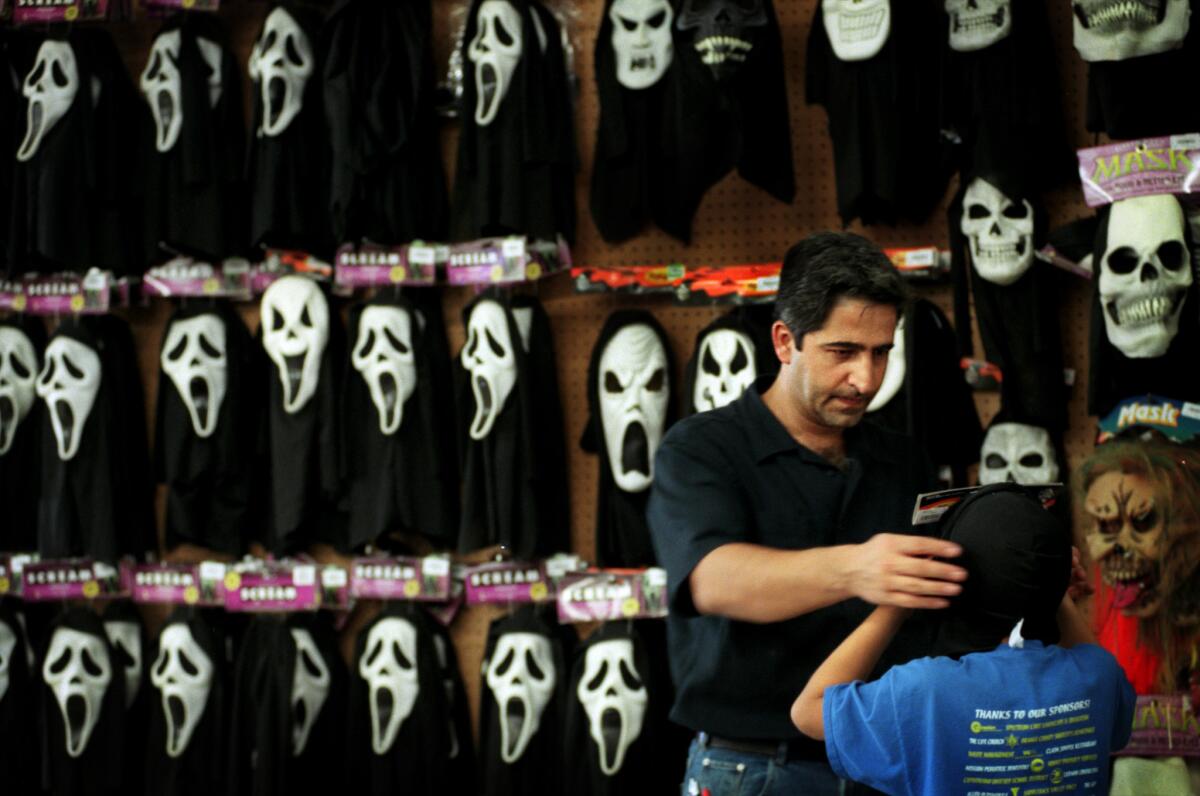
If retailers suffer heavy losses during the Halloween season, many may launch Christmas promotions early to try to compensate, the University of Richmond’s Arnold said.
That’s not really a saving grace for Halloween-focused businesses such as costume store Spirit Halloween, whose brick-and-mortar stores are open only from late August through early November.
Spirit Halloween and costume-and-festivities retailer Party City — which credited Halloween for one-fifth of its revenue last year — say they will open as usual in hopes that costumes will be in demand this year despite the pandemic.
“It’s been a challenging year, but we promise to keep the Halloween spirit alive,” Spirit Halloween said in a statement.
Some Halloween enthusiasts said they will probably stay home the night of Oct. 31.
“Costume parties will most likely not happen for me this year, sadly,” said Leilani Padilla, a grocery store cashier from Los Angeles who has attended the Halloween festivities at Universal Studios Hollywood annually for the last eight years. “I will probably stay home and watch horror movies all day.”
Southern California theme parks are already missing the summer. They’re now expected to miss out on the sales of souvenirs, attendance tickets, food and drinks from another highly profitable season.
Universal Studios Hollywood’s annual Halloween Horror Nights offering has become so popular that it typically stretches from mid-September through at least Halloween night. In 2014, the theme park’s parent company, Comcast Corp., cited the Halloween event as contributing to a 30% jump in theme park revenue compared with the previous year.
Tickets for the after-hours event were priced last year at between $67 and $102, depending on the date.
General admission tickets for the Queen Mary’s Dark Harbor event sold for $34 last year.
Fans of the Universal Studios Halloween Horror Nights say they are disappointed that the annual event has been canceled but understand the reasons.
“This is the heartbeat of my Halloween, and though it’s tough, I will just have to hold out until 2021,” said Juan DeJesus, a boutique manager from Anaheim who has attended the event annually since 2009.
At Disney California Adventure Park, an evening costume party for young visitors known as the Oogie Boogie Bash has been canceled because state health officials have yet to release guidelines for safely reopening theme parks, a Disneyland spokeswoman said.
The event ran for about 20 nights last year, with tickets priced from $100 to $145.
“Oogie Boogie Bash requires a substantial amount of planning and coordination,” spokeswoman Liz Jaeger said, and with state guidelines still pending, this year “we are unable to bring the event back.”
